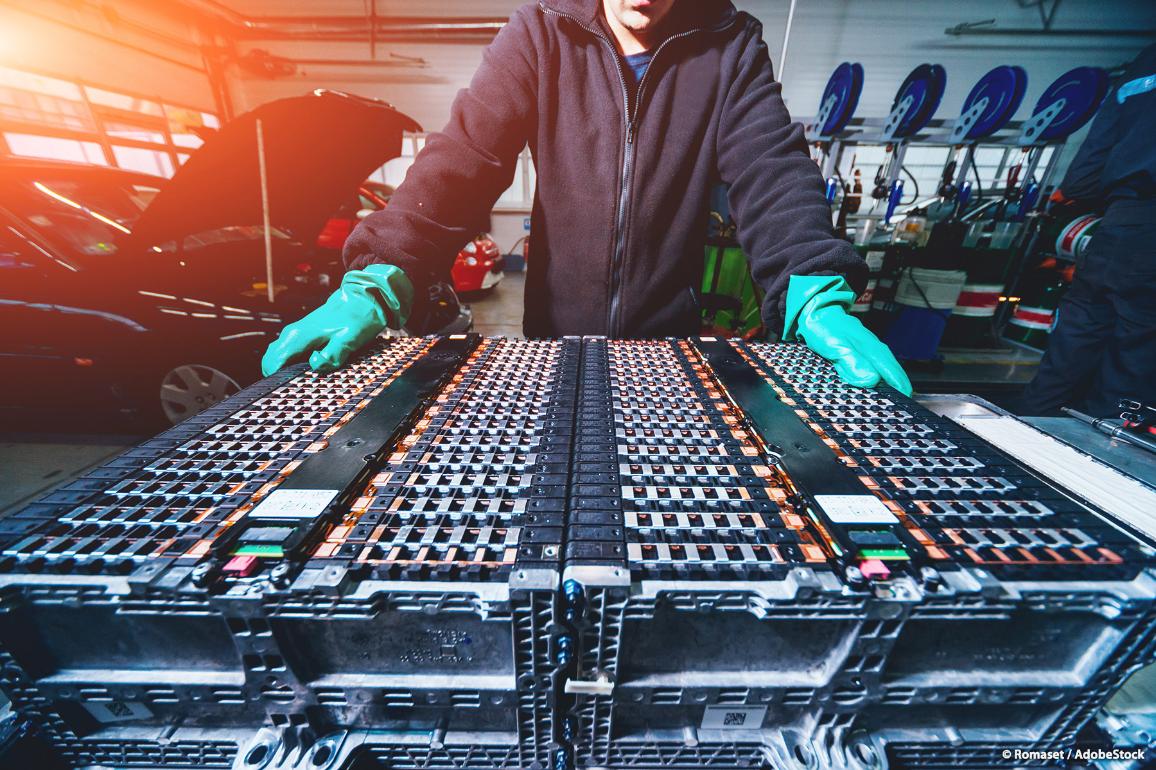Is the European law for sustainable batteries green rubbish?

The European Union wants to guarantee the "sustainability" of batteries with an ad hoc law, but who will monitor the controllers? These devices require metals mined and processed in countries where practices banned in Europe are permitted. All the details
In August the European Union approved a new law, the Batteries Regulation , to guarantee a sustainable, i.e. environmentally friendly, battery supply chain. Batteries are essential for the ecological transition because they allow both to power electric vehicles, which will have to reduce the consumption of fossil fuels for mobility, and to store the energy surplus produced by renewable sources, which will have to reduce the centrality of gas or gas systems. coal in electricity generation.
THE PROBLEM OF METALS FOR BATTERIES
Batteries, however, are made of materials such as lithium, nickel, cobalt and graphite which must be extracted and refined; the extraction and processing of these critical minerals can be a very impactful activity on both the landscape and the climate. Furthermore, the European Union is almost completely dependent on foreign countries for the supply of battery materials, with peaks of more than 90 percent for manganese, graphite and lithium.
THE ENERGY TRANSITION RISKS OF NOT BEING ECOLOGICAL
China is the clear dominant country in the refining of critical minerals, while Indonesia is by far (worth almost half of the global total) the largest producer of nickel. The risk, therefore, is that the ecological transition could put the Union in a situation of commercial-technological dependence on foreign countries.
Furthermore, the transition may not even be so "ecological" due to the industrial practices adopted by Asian countries; practices that would often not be permitted in Europe. For example – Bloomberg wrote -, in Indonesia some factories can throw nickel processing waste into the ocean: an advantage in terms of costs, but damage to the environment.
THE REPORTING SERVICE
On November 19 , Report dedicated a report to the topic of "sustainability" of the battery supply chain which the European Union would like to guarantee but which often clashes with the polluting industrial practices permitted for example in Indonesia (the subject of the report).
This summer the EU Parliament approved a regulation for electric car batteries to control the supply chain, but producers will be able to choose their own controller and pay him to certify that the batteries are green and without exploitation. #Report at 8.55pm on #Rai3 pic.twitter.com/eZJBgR8AxW
— Report (@reportrai3) November 19, 2023
The report contains an interview with MEP Achille Variati, of the Democratic Party, on the European regulation for batteries. To certify the absence of polluting practices or practices detrimental to human rights along the supply chain of these devices, "there must be an independent authority" untied from economic relationships with end users, such as car manufacturers, explains Variati.
“The Commission will have to give […] very precise criteria,” he said, “and I hope that if you produced the critical raw materials in a dirty way, you might not have to market your batteries in Europe.” As the interviewer points out, Variati uses the conditional in his reasoning; the MEP admits that there are “strong interests that oppose this regulation”. But it is objectively difficult for European companies to create supply chains for batteries that fully respect environmental and social sustainability, given the absence of a large community industry and given the market share of nations such as Indonesia and China. There are alternative supply chain initiatives located in Western countries – therefore more similar on the political and regulatory side – such as the United States andAustralia , but these are still nascent projects.
WHAT DOES THE EUROPEAN REGULATION FOR BATTERIES PROVIDE
The European Union's Batteries Regulation aims to ensure that batteries have a "low carbon footprint" and use "a minimum number of harmful substances" such as mercury and lead.
“To help consumers make informed decisions about which batteries to buy, key data will be provided on a label,” explains the European Commission. “A QR code will allow access to a digital passport with detailed information about each battery, which will help consumers and especially professionals along the value chain in their efforts” to focus on sustainability.
The law requires companies to “identify, prevent and address social and environmental risks related to the sourcing, processing and trading of raw materials such as lithium, cobalt, nickel and natural graphite contained in their batteries. The expected massive increase in demand for batteries in the EU is not expected to contribute to an increase in such “environmental and social risks” as deforestation, spills of harmful substances into water bodies and forced labour.
Companies subject to the Regulation will therefore have to (among other things) identify the critical sustainability links in their supply chains and subject their battery materials to third-party verification. This person must be independent both from the company whose materials he will verify and from any developer, manufacturer and distributor of the material in question.
THE CRITICISM OF EUROPEAN CAR MANUFACTURERS
ACEA, the association of European car manufacturers chaired by Luca de Meo (the CEO of Renault), has addressed some criticisms of the Batteries Regulation.
Referring to the difficulties of sourcing critical minerals from countries close to Europe, ACEA writes that if European authorities “want to make European batteries the most sustainable in the world, they must also guarantee EU industries safe and reliable access to raw materials they need to fuel the green transition”. The provisions and implementation times of the regulation must therefore be supported by “credible enabling conditions”, according to the association.
This is a machine translation from Italian language of a post published on Start Magazine at the URL https://www.startmag.it/energia/batterie-regolamento-europeo-sostenibilita/ on Wed, 22 Nov 2023 06:47:55 +0000.
